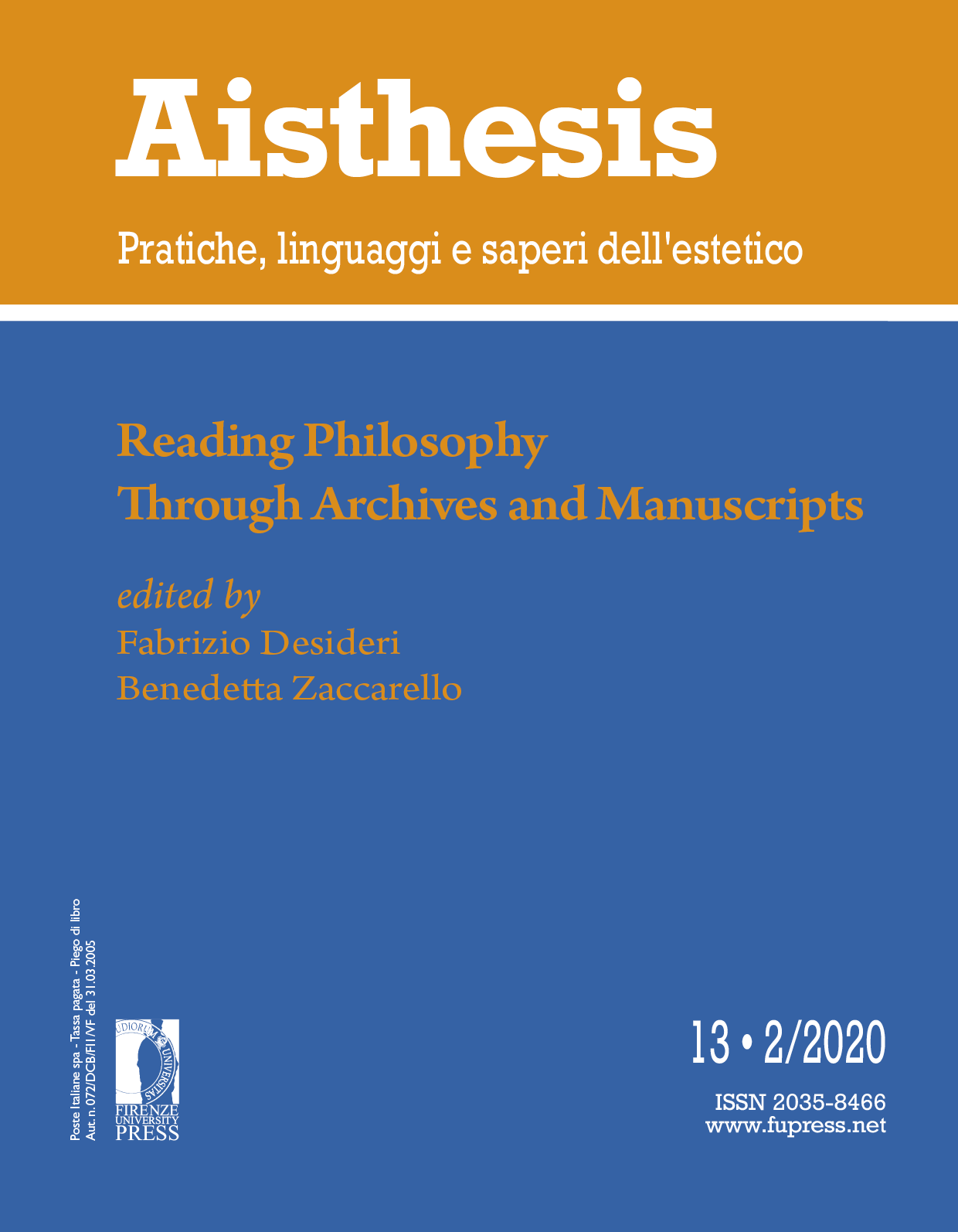Vol 13, No 2 (2020): Reading Philosophy Through Archives and Manuscripts
Issue Description
The philosophical manuscript is a peculiar object that has only recently started to receive proper consideration. However, in Europe for instance, major archival centers have for a long time been collecting important philosophical data — such as Nietzsche, Benjamin or Kierkegaard’s archives — and have contributed to preserve the memory of philosophical writing across the 20th century. This process has led to the constitution of an archival heritage that remains open to further exploration.
This issue of Aisthesis aims to investigate the specific status of philosophical manuscripts and of the forms and modalities of expression to which they testify. We welcome contributions illuminating the approach to this type of document, and proposing methodological considerations embedded in specific practices of archival research. Philosophical manuscripts are usually known and studied by hyper-specialized scholars working on the critical edition of such or such thinkers. In this issue of Aisthesis, we wish to bring together various archival experiences testifying to the specificity of the work on philosophical manuscripts. We welcome contributions by scholars and archivists working on manuscripts of Western and non-Western philosophical corpuses.
We propose the three following orientations:
1) What are the methodological specificities in studying a philosopher’s work from the standpoint of manuscripts and archives? What does archival research bring to philosophical inquiry and to the history of philosophy? How does it affect our understanding of the process of philosophical writing – the philosopher’s ‘wording of thoughts’?
2) How has the development of digital technologies transformed approaches to archives and manuscripts, as well as the work of interpretation, representation, edition, and publication of philosophical archives?
3) What are the different politics of conservation of philosophical archives, and how do these affect the approach to manuscripts? Are there specific modalities of curating and archiving philosophical manuscripts, and what are their social or political implications? What is the status of the philosophical manuscript from a cultural, ideological or even religious point of view?
3) Is the increasing attention paid by scholars trained in Western dualistic thought to the animacy of inorganic bodies leading us toward a “second-hand animism”, or are we facing an actual turning point in humanities?

